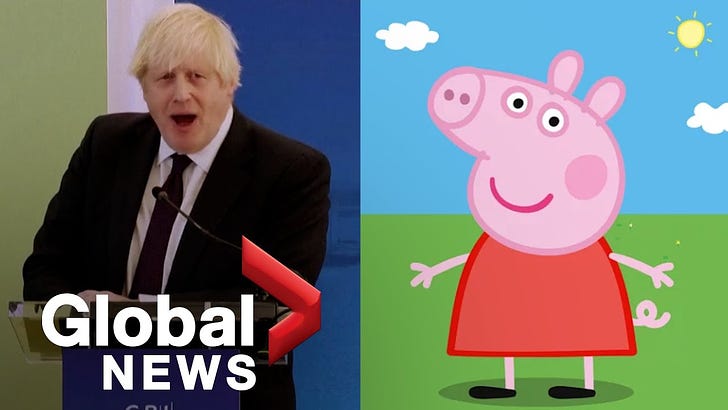The death of Tory England: It’s not murder, it’s suicide
Killed by the failure to meet ordinary "conservative" aspirations for a decent life
On 31 January 2020, the Conservatives looked as if they would be the masters of the UK for as far ahead as anyone can see. Boris Johnson had won power with a large majority a month earlier, and could now announce that the great dream of the right was a reality. He was taking Britain out of the EU.
“This is a moment when the dawn breaks and the curtain goes up on a new act in our great national drama,” he declared. Commentators looked on and were awestruck by the power of a Brexit movement that looked set to reshape politics. The political journalist Tim Shipman said
Boris Johnson now squats like a giant toad across British politics. He has expanded the Overton window in both directions. Praising bankers and drug companies, while tight on immigration and woke history. Cheered for lauding the NHS and pro LGBT. Where does Labour find a gap?
Who could deny the truth of that? Who could challenge the hegemonic right?
The Labour party had put a far leftist in charge and paid the price in 2019 with its worst election defeat since 1935. The Conservatives offered Liberal Democrats the prospect of power in 2010, like a witch offering Hansel and Gretel cakes. Collaboration with a Tory government that tore up public services choked them. They lost 49 of their 57 in the 2015 general election, and never recovered. (“I think I’ve just killed the Liberal Democrats” a prescient William Hague told his wife in 2010 after he arranged the blood wedding.)
The Scottish National Party dominated Scotland, but its success suited the Conservatives. Scottish nationalism denied Labour seats while inspiring English nationalism, which benefited the Tories and the new forces on the right.
As early as 2013, Jacob Rees-Mogg, who makes up in low cunning what he lacks in class, had spotted a more seductive potential in a populist movement. Faragism might help the Tories rather than threaten them, he speculated. It showed the right could win in working class constituencies. If the Tories echoed Ukip’s demands to leave the EU and clamp down on immigration, wondrous prospects would open.
“Is it, therefore, now time to unite the right by making a big open and comprehensive offer” to Ukip voters?” Rees Mogg asked.
Boris Johnson did just that in the December 2019 general election to devastating effect.
Now Johnson is disgraced, the country regards the Conservative party with the contempt a conquered people regards an occupying army, and Labour is heading from its worst election defeat since 1935 to its first election victory since 2005.
Why?
Keep reading with a 7-day free trial
Subscribe to Writing from London to keep reading this post and get 7 days of free access to the full post archives.



